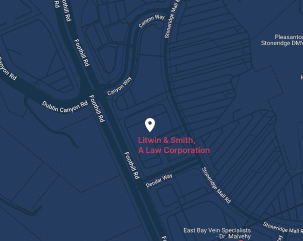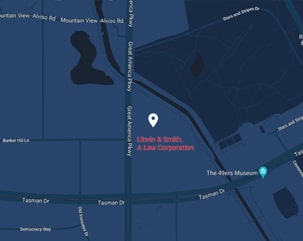LitwinLaw Newsletter – 12/1/06
December 1, 2006
Headlines:
- State Dept., DHS Announce New Passport Requirement for Air Travelers – As of January 23, 2007, citizens of the U.S., Canada, Mexico, and Bermuda traveling to the U.S. by air from any part of the Western Hemisphere will be required to present a passport or other accepted document.
- USCIS Expands Premium Processing to EB-1 Category – Expedited service may now be requested for EB-1 extraordinary ability cases.
- Labor Dept. Inadvertently Withdraws Labor Certification Cases, Corrects Error – The Office of Foreign Labor Certification is identifying the affected cases and reinstating them.
- USCIS Announces Case Processing Target Times – The agency issued recent guidance to the field outlining case processing timeframes.
- USCIS Revamps Web Site, Moves Many Pages – Readers may want to update their bookmarks.
- Uptick in Foreign Student Enrollments Reported – The overall decline in foreign student enrollments appears to have slowed.
- U.S. ‘World’s Worst’ for Entry Hassles, Survey Finds – But foreign travelers like it here once they get past the initial obstacles.
Also in this issue:
Details…
1. State Dept., DHS Announce New Passport Requirement for Air Travelers
The Departments of State and Homeland Security announced that as of January 23, 2007, citizens of the U.S., Canada, Mexico, and Bermuda traveling to the U.S. by air from any part of the Western Hemisphere will be required to present a passport or other accepted document (such as a Merchant Mariner Document or a NEXUS Air card at designated sites). Permanent residents (green card holders) will continue to be able to use their Alien Registration Card (Form I-551) or other valid evidence of permanent resident status to apply for entry to the U.S. Children who are U.S. citizens will need a passport even if their parents are green card holders.
An individual traveling as a member of the U.S. armed forces on active duty is not required to present a valid passport to enter or depart the U.S. Spouses and dependents, however, will be required to present a passport and valid visa, if applicable.
In the second phase of the Western Hemisphere Travel Initiative, targeted for implementation on January 1, 2008, U.S. citizens traveling between the U.S. and Canada, Mexico, Central and South America, the Caribbean, and Bermuda by land or sea may be required to present a valid U.S. passport or other document.
2. USCIS Expands Premium Processing to EB-1 Category
U.S. Citizenship and Immigration Services (USCIS) announced that starting on November 13, 2006, premium processing service may now be requested for EB-1 extraordinary ability cases. Premium processing allows U.S. businesses to pay a $1,000 fee in exchange for 15-calendar-day processing of their case.
Since 2001, premium processing service has been available for several nonimmigrant worker classifications, including E treaty traders and investors, H-1B specialty occupation workers, H-2B temporary workers performing non-agricultural services, H-3 trainees, L intracompany transferees, O aliens of extraordinary ability and those performing essential support services, P performers and athletes and those performing essential support services, Q international cultural exchange visitors, R religious workers, and NAFTA professionals from Canada and Mexico. Form I-129 petitions for those nonimmigrant worker classifications will continue to be eligible for premium processing service unless the filing period has closed (for example, when the annual numerical cap for a specific visa classification has been reached).
Also, earlier this year, USCIS began accepting premium processing service requests for petitions involving five other immigrant visa categories: EB-1 outstanding professors and researchers, EB-2 members of professions with advanced degrees or exceptional ability not seeking a national interest waiver, EB-3 professionals, EB-3 skilled workers, and EB-3 workers other than skilled workers and professionals.
The notice announcing the expansion is posted here.
3. Labor Dept. Inadvertently Withdraws Labor Certification Cases, Corrects Error
The Department of Labor’s Office of Foreign Labor Certification (OFLC) reported on November 15, 2006, that because of a “technical issue,” a number of traditional and reduction-in-recruitment (RIR) labor certification cases were identified inadvertently as pending PERM re-file applications and were thus withdrawn from backlog processing. OFLC stated that it was identifying the affected cases and reinstating them to the “appropriate processing status in proper order.”
In other cases, however, withdrawal was appropriate and those cases will not be reinstated. Such cases include PERM re-filings where the use of the earlier traditional or RIR priority date was requested and, therefore, the earlier case was withdrawn.
Affected employers and their attorneys will not be receiving an additional notice of reinstatement but are invited to verify that their case has been reinstated by using the Public Disclosure System (PDS). Users can access the PDS by clicking on the “Check Backlog Case Status” link on DOL’s Backlog Centers’ Web page ( http://www.foreignlaborcert.doleta.gov/). Once the PDS Web page is open, users enter the 10-digit case number, which begins with a “D” if the case is located in the Dallas BEC or “P” if the case is in the Philadelphia BEC. (Some cases may have had case numbers staring with “T” before data entry was completed at a BEC. All such cases have since been converted and now begin with either “D” or “P,” which should be used for case status checks on the PDS.) After entering the case number, the search results show the current case status. Case status definitions are provided at the bottom of the PDS Web page.
Because verification will be available online, OFLC asks employers and attorneys not to contact the BECs regarding the status of such cases. The appropriate BEC will notify the employer or attorney if additional documentation is needed.
OFLC’s notice is posted at http://www.foreignlaborcert.doleta.gov/ (scroll down to “What’s New”).
4. USCIS Announces Case Processing Target Times
U.S. Citizenship and Immigration Services (USCIS) issued recent guidance to the field outlining case processing timeframes:
Rescheduling interviews: USCIS said interviews should be rescheduled at the individual’s request only when there are “compelling extenuating circumstances beyond the individual’s control,” and that the rescheduled interview should occur within 11 weeks of the initially scheduled interview.
Requests for Evidence (RFEs): USCIS noted that an RFE is a “single opportunity” for an individual to provide the requested information and an extension of the standard timeframe cannot be provided. On an application where the applicant could receive interim benefits, USCIS’s objective is to pre-screen the employment authorization document (EAD) and/or advance parole application, the underlying application, and any pending underlying petition within 10 days of filing to identify whether there is any missing initial evidence or required additional evidence. USCIS noted that finding such missing initial evidence or required additional evidence early affects the timing for eligibility for interim benefits (such as advance parole or work authorization).
When a case is missing initial evidence, the RFE stops the 90-day processing clock on the associated EAD and/or advance parole application. The clock starts over when USCIS receives a timely response to a request for required initial evidence. An RFE for additional evidence, however, only suspends the processing clock, which resumes, when USCIS receives a timely response, at the point where it had stopped.
When necessary evidence or information is identified at the interview and USCIS decides that a short-term (generally one to two weeks and no more than a month) opportunity to submit the materials is appropriate, it may be done as an extension of the interview. When more time is warranted, USCIS stated, it should be done as an RFE.
USCIS’s memorandum, which includes additional timeframes, is posted at http://www.uscis.gov/files/pressrelease/casemgmt.pdf.
5. USCIS Revamps Web Site, Moves Many Pages
U.S. Citizenship and Immigration Services (USCIS) has replaced its Web site with a redesigned Web portal at the same Internet address ( http://www.uscis.gov). Many USCIS Web pages that users have bookmarked have moved as a result of the redesign. USCIS’s Web portal is one of the most heavily trafficked Web sites in the federal government, serving an average of 135,000 visitors daily.
A fact sheet that lists the most frequently requested USCIS Web pages and their new addresses.
6. Uptick in Foreign Student Enrollments Reported
NAFSA: Association of International Educators announced on November 13, 2006, that although overall foreign student enrollments at U.S. higher education institutions are down by more than 20,000 from the all-time high of the 2002 academic year, 52 percent of institutions surveyed reported an increase in foreign student enrollments this year as compared to last. Among responding institutions with the largest foreign enrollments, 73 percent reported an increase this year. NAFSA CEO and Executive Director Marlene Johnson said, “While the latest numbers are cause for optimism that the troubling declines of the last several years may be headed toward a recovery, the United States has a lot of work to do to restore its competitiveness for international students and scholars.”
NAFSA also estimated that foreign students and their families spent $13.49 billion in the U.S. during the 2005-2006 academic year, including tuition and fees as well as living expenses. For details on foreign student spending.
NAFSA’s announcement about the survey results is posted at http://www.nafsa.org/press_releases.sec/press_releases.pg/06enrollsurveyrel. The full survey report and analysis conducted by a variety of higher education associations are available http://opendoors.iienetwork.org/.
7. U.S. ‘World’s Worst’ for Entry Hassles, Survey Finds
The Discover America Partnership, a travel industry initiative, has released the results of a survey finding that foreign travelers, by a two-to-one margin, named the U.S. as the “world’s worst” for obtaining a visa and entering the country. On the positive side, a majority had an “extremely favorable” experience in the U.S. once they got past the initial hurdles.
Of 2,011 travelers interviewed outside the U.S., 36 percent said they did not want to come to the U.S. because of fears of detention or delay. A full 40 percent said they tried but failed to obtain a visa within the previous two years.
Follow these links to access current processing times of the USCIS Service Centers and the Department of Labor, or the Department of State’s latest Visa Bulletin with the most recent cut-off dates for visa numbers:
Department of Labor processing times and information on backlogs:


